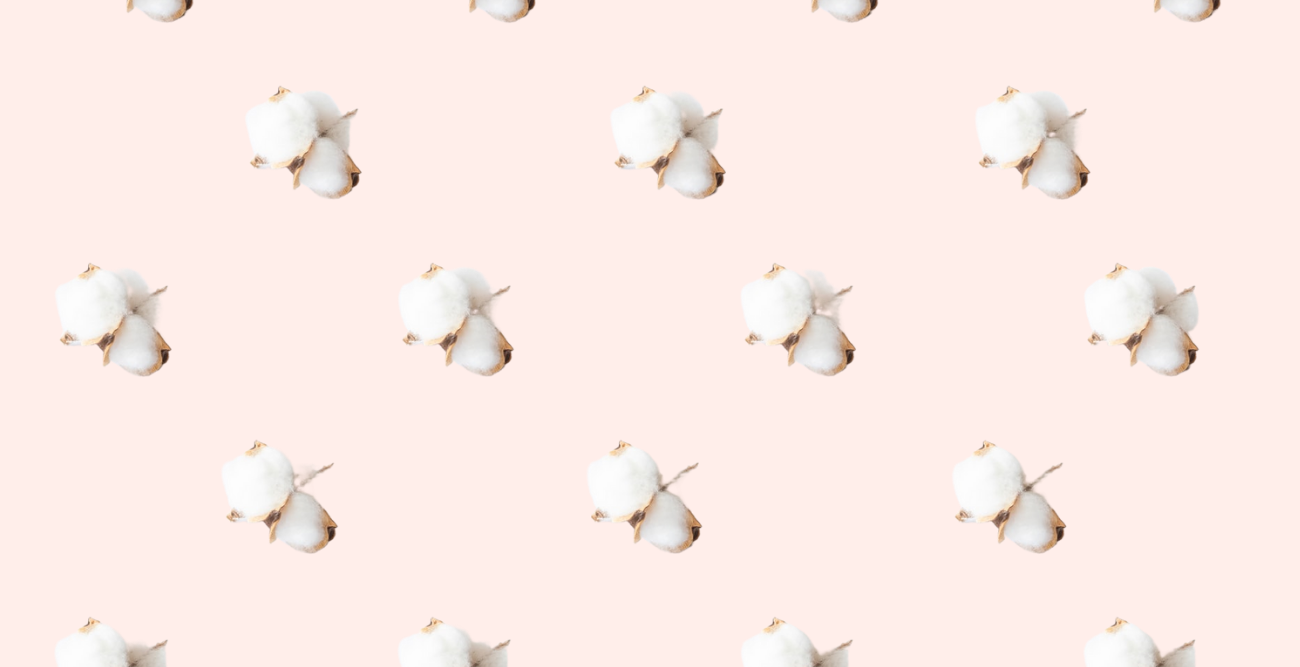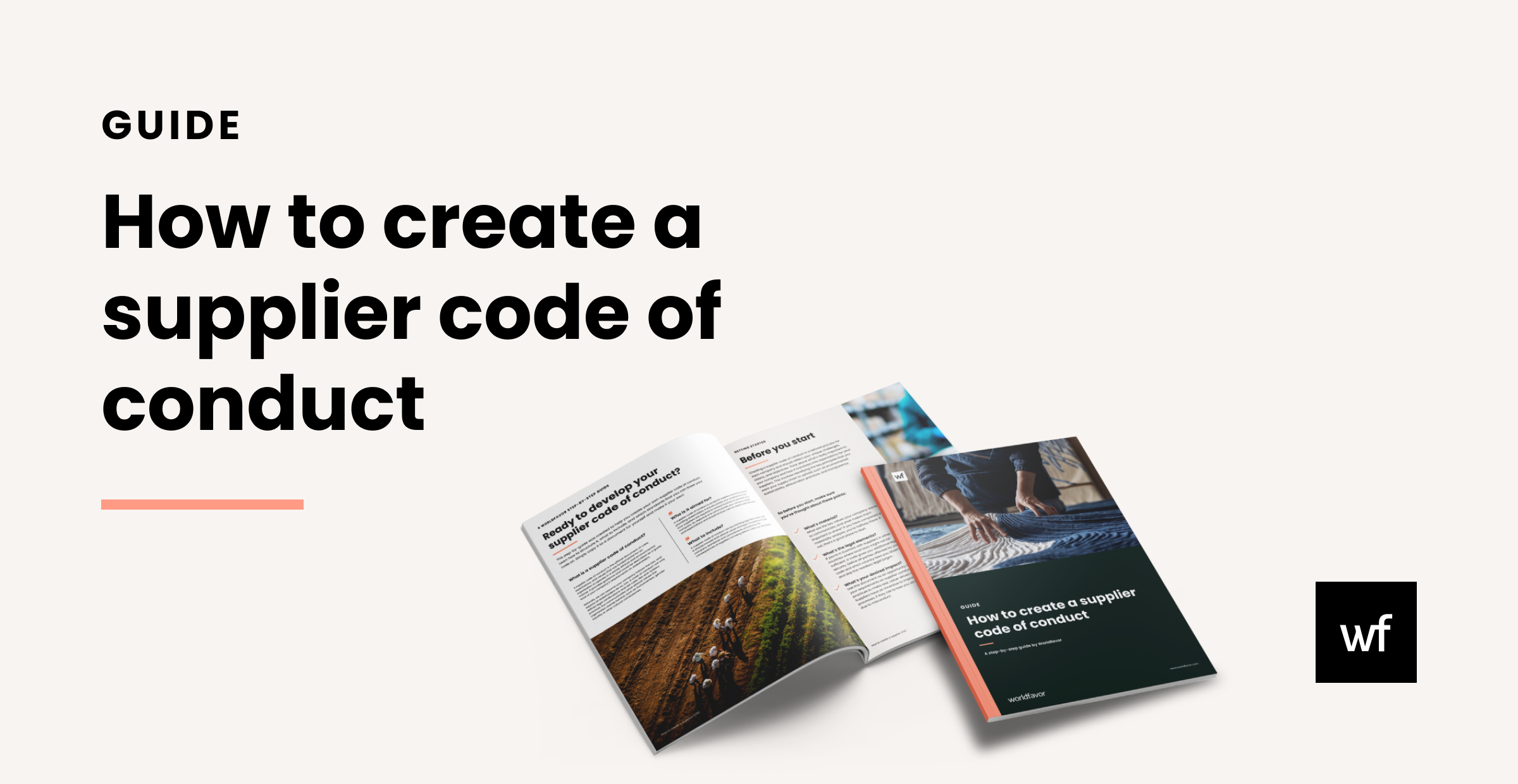Creating a sustainable cotton industry: 3 initiatives to get you started

The global cotton industry is facing some major challenges in the move towards cotton sustainability. Never before has the industry experienced as much change, development, and evolution as it does now, and the cotton industry has historically survived through a lot.
In this blog post, we give you hands-on tips on how you as a part of the industry can take a step towards a more sustainable cotton industry.
Challenges in the cotton industry
So, what are the greatest challenges the cotton industry is facing today? There are of course nuances to this but they easily boil down to two main industry challenges:
- The climate crisis is resulting in a changing environment, a rise in temperatures, and water shortage, which is expected to alter cotton productivity.
- Ethical concerns due to the use of forced labor in the form of modern slavery throughout the industry. Read more about how to identify the risks of modern slavery in your supply chain.
Keep reading to find out what initiatives are working against these challenges, and how you can risk and future-proof your company to mitigate a changing cotton industry!
Initiatives for sustainability in cotton
Let's dive down into the field of sustainable cotton and learn more about three of the most internationally recognized initiatives, and showcase the benefits of complying with them.
There are currently several major standards, schemes, and initiatives out there for growing cotton using sustainable or ethically based principles. We will look closer at the Better Cotton Initiative (BCI), the EU Ecolabel, and Fairtrade cotton.
Each program has a different emphasis – be it geographic or issue-driven. For example, The Fairtrade standard includes environmental criteria but mainly relates to farming livelihoods and farming communities. BCI incorporates both social and environmental criteria but does not set as high a benchmark as the EU Ecolabel or Fairtrade standards.
Other than these three initiatives and schemes, a great first step for companies is to make sure that they have an up-to-date risk assessment in place to mitigate and prevent risks associated with cotton.
The Better Cotton Initiative
The Better Cotton Initiative (BCI) started in 2005 as a joint program between the World Wildlife Fund (WWF) and leading international textile brands with the goal to improve the social, environmental, and economic outcomes for cotton farmers.
WWF writes that bringing cotton production in line with even minimally acceptable environmental standards is a challenging task, and BCI is a first step in taking steps towards more acceptable standards for the cotton industry. BCI is backed by companies such as Levi Strauss, Marks & Spencer, IKEA, H&M, and Adidas.
Based on six principles, the BCI aims to improve farmers’ outcomes by:
- Providing education around water and pesticide use.
- Promoting soil and biodiversity conservation.
- Aiming to improve the quality of the cotton fiber.
- Provide minimum standards of work for farmers and their workers.
Unlike Fairtrade and organic cotton methods, BCI uses genetically modified cotton seeds and pesticides, but they do it within an ‘Integrated Pest Management’ framework that seeks to minimize their use. There are of course nuances and criticism towards the BCI as with all big initiatives, like in this article by the Guardian.
We want to point out that the BCI also creates a great first step for bigger companies, that is their target audience, to take action and raise a lot of attention to the need for environmental and social change towards a more sustainable cotton industry.
EU Ecolabel
The EU Ecolabel or the EU Flower is a voluntary ecolabel scheme established in 1992 by the European Union. The European NGOs and consumer organizations say that the label’s main focus is helping consumers make more informed purchasing decisions.
The EU Ecolabel itself happily states that even during the pandemic and with the challenges it brought, the number of EU Ecolabel products has been increasing. Showing the increasing interest in eco-friendly products both from consumers and from the company’s applying the label to their products.
The EU Ecolabel states that once their label is on your products, they guarantee:
- A more sustainable fiber production.
- A durable product.
- A lesser polluting production process.
- Strict restrictions on the use of hazardous substances.
Benefits for your company if you comply with the EU Ecolabel:
- Influencing consumer behavior towards more environmentally friendly products.
- Promotion of economic efficiency in response to predefined standards.
- Economic support for sustainability.
The biggest criticism towards the EU Ecolabel is that on closer inspection it became apparent that the EU Ecolabel does not cover water pollution indicators for viscose manufacturing, which is quite the oversight.
Fairtrade cotton
Fairtrade is a highly recognized and trusted ethical-focused sustainability label. They can help your company do great things, like making sure all farmers in your supply chain are being treated correctly.
Fairtrades work within the cotton industry is based around working together with small-scale cotton farmers in Asia and Africa and helping them to build up stronger farmer-owned organizations. This is important because farmers can achieve a lot more together as a group in negotiations with ginners and traders or in supporting the local community. Fairtrade cotton is sold by farmers at a guaranteed minimum price and with an additional premium for investment in community development projects, such as drilling wells and building schools.
The key benefits of Fairtrade cotton are:
- Farmers receive incomes calibrated to the cost of production.
- Cotton farming communities are funded and supported to implement their own development projects.
- 65 percent of Fairtrade cotton farmers also hold an organic certification.
Benefits for your company if you comply with Fairtrade:
- Recognition, consumers know and trust Fairtrade.
- Sourcing models, Fairtrade offers models that enable companies to make their supply chains sustainable and transparent.
- Stable business relationships with suppliers.
- An ethical standpoint. Fairtrade provides tools for companies to tackle exploitative labor and the unsustainable exploitation of natural resources.
- A certification and assurance system you can trust: ISEAL’s Assurance Code, an international code for sustainability standards.
There are set Fairtrade minimum prices for Fairtrade certified cotton, while Fairtrade organic cotton commands an extra price premium. One main ethical criticism of Fairtrade is that this premium over non-Fairtrade products does not reach the producers and is instead collected by businesses, employees of co-operatives, or used for unnecessary expenses.
Gain transparency with Worldfavor
With Worldfavor, you get all the tools needed to take effective measures to gain complete transparency in your supply chain or let us help your company comply with schemes and initiatives working toward a more sustainable cotton industry. Regardless of where you're at on your journey, we got all of the internationally recognized social frameworks, such as relevant SDG targets related to forced labor, for you to start aligning with. Contact us today and book a free demo to get started!
Related blogs you might like:
- Modern slavery: how to identify risks in your supply chain
- What is supply chain visibility and how to achieve it?
- Why corporate transparency is so necessary






%20as%20the%20deadline%20approaches.%20Learn%20about%20compliance%20requirements%2c%20potential%20delays%2c%20and%20key%20updates..png)

